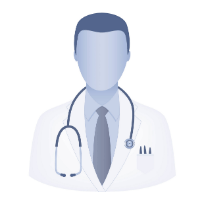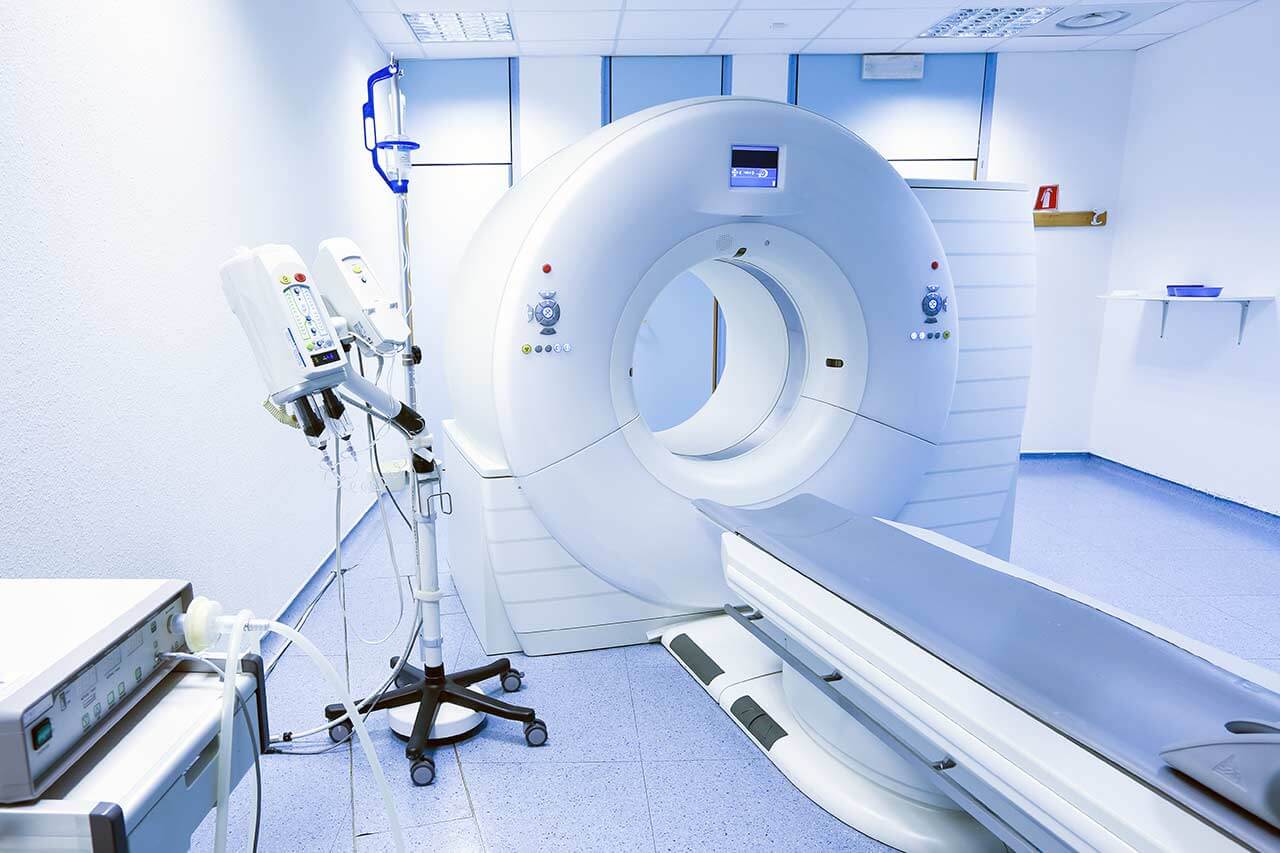
The program includes:
- Initial presentation in the clinic
- clinical history taking
- review of medical records
- physical examination
- laboratory tests:
- thyroid function test (TSH-basal, fT3, fT4)
- mineral metabolism analysis (Na, K, Ca, Mg)
- lipid metabolism (HDL/LDL, cholesterol,
triglycerides Lip(a), homocysteine) - blood coagulation analysis (aPTT, PT, INR)
- metabolic status (uric acid, total glucose, HbA1c)
- iron content (ferritin, iron)
- iflammatory parameters (CRP, ESR)
- cardiovascular disease risk markers
- analysis of blood gas exchange
- ultrasound of the endocrine system
- ophthalmologic examination
- daily pressure monitoring
- consultation on healthy eating
- cardiologic examination:
- resting and Exercise ECG
- vessel elasticity measurement
- body fat and water examination
- color doppler echocardiography
- color doppler sonography of cerebral vessels
- consultation of related specialists
- symptomatic specific treatment
- the cost of essential medicines and materials
- nursing services
- control examinations
- full hospital accommodation
- developing of further guidance
Required documents
- Medical records
Service
You may also book:
 BookingHealth Price from:
BookingHealth Price from:
About the department
According to the Focus magazine, the Department of Endocrinology and Metabolic Disorders at the University Hospital Heidelberg ranks among the top German departments specializing in the treatment of diabetes mellitus!
The department offers the full range of services in the diagnostics and treatment of diseases of the endocrine glands, metabolic disorders. Of particular interest is the treatment of diabetes mellitus, obesity, osteoporosis and thyroid pathologies. All doctors of the department have in-depth expert knowledge, vast experience, and also have at their disposal all the modern methods allowing them to ensure a positive treatment outcome. The Chief Physician of the department is Prof. Dr. med. Dr. h.c. Peter Paul Nawroth.
The service range of the department includes:
- Diagnostics and treatment of type 1 and 2 diabetes mellitus, rare forms of diabetes mellitus, gestational diabetes mellitus
- Individual and group training of diabetes patients for a new way of life
- Insulin pump therapy and training of patients how to use the insulin pumps by themselves
- Special diagnostics of nerve lesion due to the diabetes mellitus (including autonomic neuropathy)
- Consultations on nutrition in diabetes mellitus
- Diagnostics and treatment of diabetic foot
- Prevention of cardiovascular diseases
- Interdisciplinary consultation on obesity
- Diagnostics and therapy of lipid metabolism disorders
- Diagnostics and treatment of hormone-induced arterial hypertension
- Diagnostics and treatment of endocrine pathology
- Thyroid and parathyroid diseases
- Goiter
- Thyroid cancer
- Thyrotoxicosis
- Autonomous adenoma
- Hypothyroidism
- Thyroiditis
- Primary, secondary, or tertiary hyperparathyroidism
- Diagnostics and treatment of adrenal gland diseases
- Incidentaloma
- Adrenal adenoma
- Cushing's disease
- Conn's syndrome
- Adrenal cancer
- Pheochromocytoma
- Endocrine diseases caused by tumors (for example, adrenal and pituitary tumors)
- Diagnostics and treatment of hypoglycemia and insulinoma
- Growth disorders caused by hormonal disorders
- Metabolic disorders which can lead to hypogonadism and erection problems
- Infertility due to the hormonal disorders
- Metabolic disorders due to obesity and diabetes mellitus
- Hypertrichosis in women
- Thyroid and parathyroid diseases
- Nutritional advice and diet therapy in short bowel syndrome
- Diagnostics and treatment of neuroendocrine tumors
- Diagnostics and treatment of osteoporosis (bisphosphonate therapy)
- Other medical services
Curriculum vitae
Scientific and Professional Career
- Since 2007, Deputy Head of the Presidium at the University Hospital Heidelberg.
- 2008 Start of work at the Diabetes Center, University Hospital Heidelberg.
- Since 2006, Head of the Department of Endocrinology and Metabolic Disorders, University Hospital Heidelberg.
- 2001 C4 Professor and Head of the Department of Endocrinology and Metabolic Disorders, University Hospital Heidelberg.
- 1999 - 2001 C3 Professor and Head of the Section of Vascular Surgery in the Department of Internal Medicine IV, University Hospital Tuebingen.
- 1997 Co-Founder of the Wilex Biotechnology.
- 1996 Professor of the Schilling Foundation.
- 1996 Advanced training in Endocrinology and Diabetology at the German Diabetes Society.
- 1995 Advanced training in Angiology.
- 1992 Habilitation in Internal Medicine.
- 1992 Senior Physician.
- 1991 Medical Specialist in Internal Medicine.
- 1987 - 1991 Professional training in Internal Medicine (Endocrinology, Metabolic Disorders, Section of Nephrology), University Hospital Heidelberg.
- 1985 - 1987 Postgraduate Internship, Oklahoma Medical Research Foundation, USA.
- 1982 - 1985 Postgraduate Internship, Columbia University, New York, USA.
- 1980 - 1981 Research Fellow in the Department of Internal Medicine (Gastroenterology), University Hospital Tuebingen.
- 1980 Doctoral thesis defense, University of Hamburg.
- 1974 - 1980 Study of Medicine at the University of Hamburg.
Positions in Scientific Societies and Committees
- 2011 - 2014 Board Member of the European Association for the Study of Diabetes (EASD).
- Since 2009, Scientific Advisory Board, German Center for Diabetes Research, Duesseldorf.
- 2006 - 2010 Board Member of the Medical Faculty at the University of Heidelberg.
- 2005 - 2007 Chairman of the German Diabetes Society.
- 2005 - 2006 Advisory Board of the Southwest German Society of Internal Medicine.
- Since 2005, Editor of Experimental and Clinical Endocrinology & Diabetes.
- Since 2004, Responsible for the centralization of laboratory trials at the University Hospital Heidelberg.
- Since 2001, Head of the Organizing Committee on Geriatrics.
Awards and Honorary Memberships
- 2010 Honorary Doctoral Degree at Riga Stradins University, Latvia.
- Since 2005, Member of the National Academy of Sciences Leopoldina.
- 1993 Heisenberg Scholarship of the German Research Foundation (DFG).
Photo: (с) depositphotos
About hospital
According to Focus magazine, the University Hospital Heidelberg ranks among the top five hospitals in Germany!
The hospital is one of the most advanced and reputable medical institutions not only in Germany but throughout Europe. There are more than 43 specialized departments and 13 medical institutes which cover all fields of modern medicine. A distinctive feature of the hospital is the presence of unique therapeutic methods for the treatment of complex and rare clinical cases.
Due to successful clinical practice, the hospital has been holding leading positions in the international medical arena for many years. The basis for this popularity is the combination of the very latest technologies, competent specialists, and active research activities, which allows introducing of revolutionary diagnostic and treatment methods, which save lives.
In addition to the outstanding medical achievements, it is worth noting a particularly friendly and pleasant atmosphere, and respectful attitude towards the patient. Both doctors and nursing staff make every effort to meet all the needs and wishes of the patient, pay due attention to each clinical case, and have personal communication with the patient, which contributes to a positive treatment result.
Photo: (с) depositphotos
Accommodation in hospital
Patients rooms
The patients of the University Hospital Heidelberg live in comfortable single and double rooms designed in bright colors. Each room is equipped with an ensuite bathroom with a shower and toilet. The patient rooms are quite spacious, they have a table with chairs for receiving visitors. Roomy wardrobes are provided for storing personal belongings. It is possible to connect to the Internet. In addition, the hospital offers enhanced-comfort rooms with a safe, refrigerator, and upholstered furniture. Patients have 24-hour access to the services of medical personnel.
Meals and Menus
The patient and his accompanying person have a daily choice of three menus. If you for some reason do not eat all the products, you will be offered an individual menu. Please inform the medical staff about your dietary preferences prior to the treatment.
Further details
Standard rooms include:
Religion
The religious services are available upon request.
Accompanying person
During the inpatient program, an accompanying person may stay with you in a room or hotel of your choice.
Hotel
During the outpatient program, you may live in a hotel of your choice. The managers will help you choose the most suitable options.
The hospital offers a full range of laboratory tests (general, hormonal, tests for infections, antibodies, tumor markers, etc.), genetic tests, various modifications of ultrasound scans, CT scans, MRI and PET / CT, angiography, myelography, biopsy and other examinations. Treatment with medications, endoscopic and robotic operations, stereotaxic interventions is carried out here, modern types of radiation therapy are also used. The hospital offers patients all the necessary therapeutic techniques.
- Endovascular treatment of liver pathologies with LigaSureTM, Ultracision® and Habib®-Sealer devices
- Correction of chest deformities in children (Nass operation)
- Minimally invasive direct coronary artery bypass grafting
- Replacement of ascending aorta (David procedure)
- Operations using the da Vinci robotic system
These are primary lung tumors and metastases in the lungs, benign and malignant liver pathologies, thyroid pathologies, gastroesophageal reflux disease, heart rhythm disturbances and heart failure, infertility, fibromyalgia, damages and pathologies of large joints, polyneuropathy and other diseases.
- Thoracic surgery
- Cardiac surgery
- Urology
- Orthopedics and traumatology
- Obstetrics and gynecology
The hospital's team consists of more than 13,000 highly qualified employees




